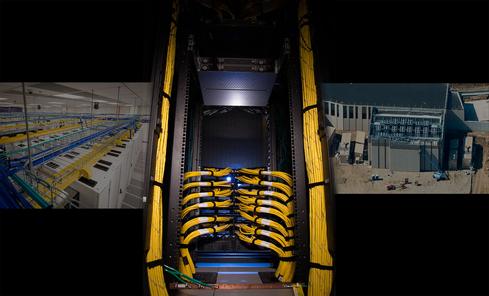Docker 1.0 Linux Container System Takes Big StepDocker 1.0 Linux Container System Takes Big Step
Docker CEO Ben Golub announces commercial support for a "production-ready" version of Docker, the defacto standard for Linux containers.


6 Models Of The Modern Data Center
6 Models Of The Modern Data Center (Click image for larger view and slideshow.)
Docker Inc. announced Monday that it now provides commercial support for the 1.0 release of its Docker Linux container system and will operate an online hub where Docker workloads may be built. The idea for the Linux containers is borrowed from Sun Microsystems' Solaris, which allowed different applications run under one instance of the operating system, each in its own address space. In the era of cloud computing containers are being viewed as an alternative to virtual machines as a way to package up workloads as a set of files and move them around the network.
Docker CEO Ben Golub will announce the availability of commercial support for a "production-ready" version of Docker at DockerCon, the company's first end-user conference Monday and Tuesday in San Francisco. The conference has 550 registered attendees and sold out quickly, leaving 400 would-be attendees on a wait list and unable to get in, he says. Next year, Docker Inc. will stage it in a larger venue than this year's Westin San Francisco Hotel.
In an interview in advance of the show, he says Linux containers will have the same effect on cloud workloads as shipping containers did on the transport of goods. Just as a shipping container is a standard size, Docker is a standard format for portable workloads. "It starts, stops, migrates, and asks for networking always in the same way," he said. And like a shipping container, once Docker is given a destination over the network, it can't be opened until it gets there.
[Want to learn more about the debate surrounding Docker? See Red Hat Linux Containers: Not Just Recycled Ideas.]
Docker Inc. uses the symbol of whale carrying a stack of shipping containers as its corporate symbol. Linux containers are attracting interest because they're a proven idea coming into a new setting, cloud computing. Docker Inc. describes the Docker open source code as the "defacto standard" for Linux containers.
Red Hat CTO Brian Stevens, also due to speak at DockerCon, is likely to agree. Docker Inc. and Red Hat have been working together to incorporate the Docker form of containers into Red Hat Enterprise Linux.
In one sense, containers are as portable as virtual machines but have less overhead. They do not need to include a full copy of the operating system, just a designated Linux kernel. This makes for more flexible application creation and deployment. The container can run anywhere there is a Linux with the required kernel.
On the other hand, more can be done with virtual machines in terms of data center management. They can be managed more flexibly once they reach the data center at their destination. They can be moved around while running. Containers cannot. There is likely to be an ongoing debate over the value of flexible virtual machines versus easily deployed and efficiently running containers.
Can the trendy tech strategy of DevOps really bring peace between developers and IT operations -- and deliver faster, more reliable app creation and delivery? Also in the DevOps Challenge issue of information: Execs charting digital business strategies can't afford to take Internet connectivity for granted.
About the Author
You May Also Like






